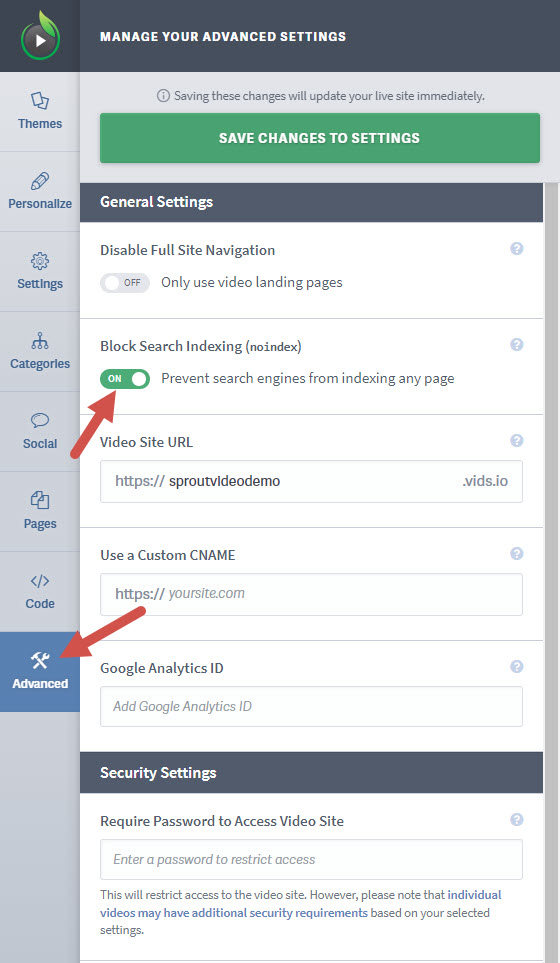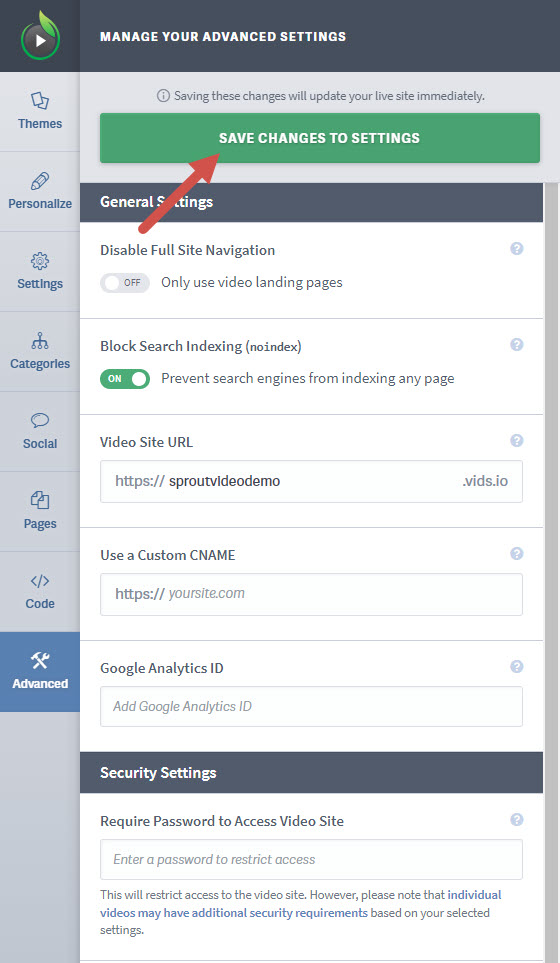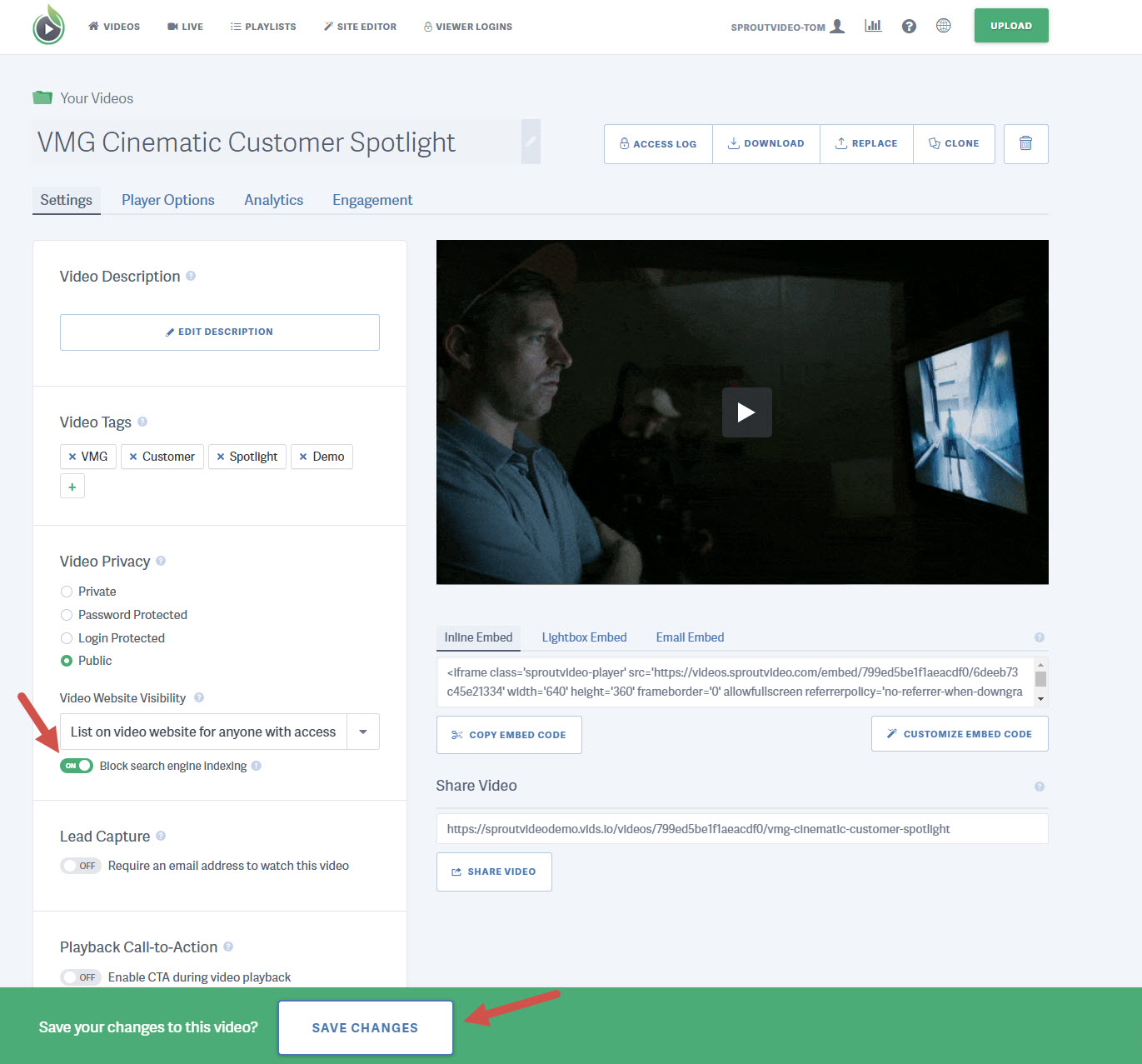What is Search Engine Indexing
Search engines, like Google, use crawlers to analyze web page content and store that information in their index. The index is essentially an inventory of websites. Indexing enables search engines to provide quick responses to search queries, and also makes it possible for your page to be returned in search results.
By default, public content hosted in your SproutVideo account may be indexed by search engines. Search indexing does not happen immediately, but your hosted landing pages for videos or live streams with a ‘public’ privacy setting will allow access to search engine crawlers.
If you do not want your content to appear in search results, you can choose to block search indexing site-wide or just for specific content landing pages.
How to Block Search Engine Indexing Site-Wide
You can choose to block search indexing of your entire hosted video website in the Advanced settings tab of your site editor.
-
Navigate to the Site Editor.

-
Select the Advanced tab, then toggle the switch for ‘Prevent search engines from indexing any page’ to On.

-
Click the ‘Save Changes to Settings’ button at the top of the page.

How to Block Search Engine Indexing for an Individual Video
Only block search indexing for specific videos or live streams from the settings detail page for that item.
-
Navigate to the video in question, then toggle the switch for “Block search engine indexing” to On.
-
Make sure to click ‘Save Changes’ when you are done.

NOTE: The method used to block search indexing is the
<meta>tagnoindexrule added to the<head>section of each page, whether site-wide or only for specific content. Be aware that some search engines might interpret thenoindexrule differently. As a result, it is possible that your page might still appear in results from some search engines, though Google does generally respect this rule.
Other articles in the Video Websites section:



